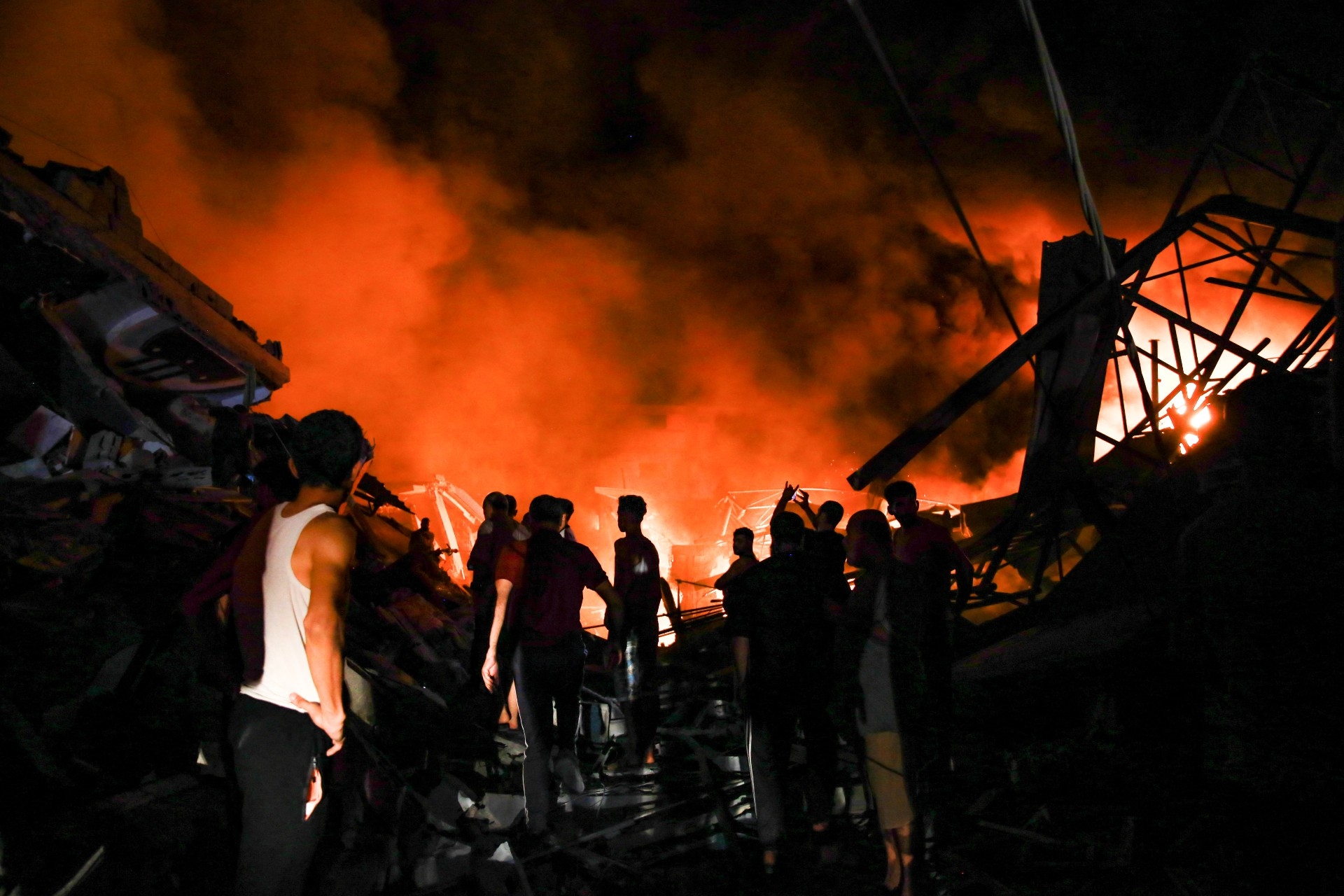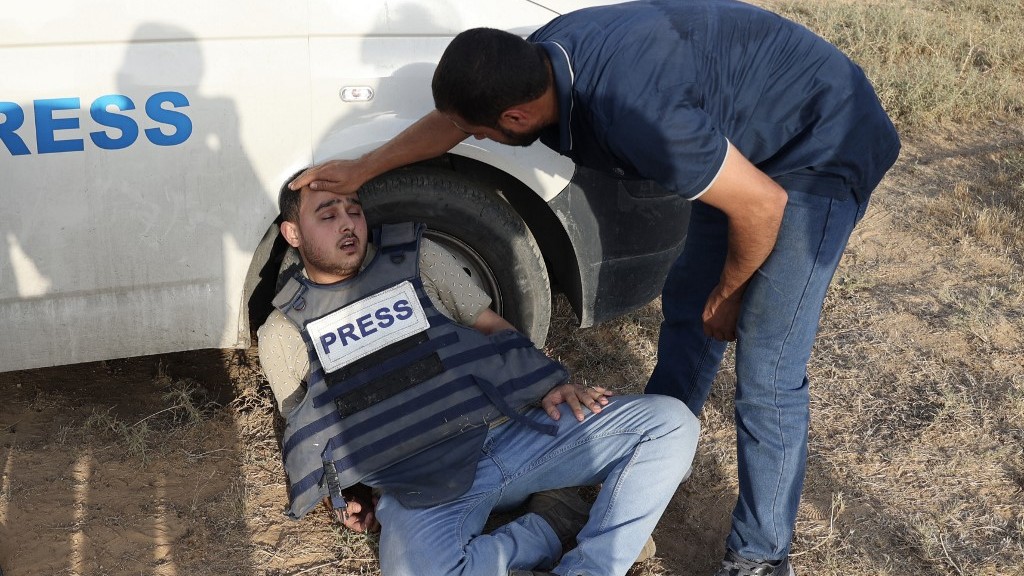‘I haven’t seen my family in two weeks’: Journalists explain reality of reporting from Gaza

Hundreds of Palestinian journalists have had to flee their homes due to intense Israeli bombing since the war started on 7 October, leaving them to face countless challenges.
Now in its third week, the war has wreaked havoc on entire neighbourhoods in Gaza, with journalists forced to work from hospitals, cars and makeshift tents.
"It's been two weeks that I've worked from the Nasser hospital," Wissam Yassin told AFP. She works for the US Arabic-language television channel Alhurra.
"I sleep in the car. I drink very little water in order not to have to go to the toilet," she said.
"The bombing is all around us. Several times we've had to abandon our cameras and not go on air for live broadcasts.
Yassin has covered several Israeli offensives against the Gaza Strip, but said she has "never experienced such difficult conditions".
"I left my home in Gaza on the morning of October 7 and haven't been back since," she said.
"Sometimes I don't answer calls from my nine-year-old daughter Bana because her crying is heartbreaking and I have no words to calm her."
"It's a tragic situation, and I haven't been able to see my family for two weeks. I think about them all the time, and that just piles up the pressure on me," said Houda Hijazi, a 25-year-old journalist for a Spanish language broadcaster.
"I manage to grab a shower every two or three days inside the hospital" in bathrooms reserved for staff, she said.
Israel has cut off all electricity, fuel, water and food for the Gaza Strip since 9 October, leaving the densely populated area overwhelmed and with little to no resources.
The majority of people are seeking shelter in schools, with thousands of people sharing one toilet.
Turkey's TRT World correspondent Nizar Saadawi, 36, said there are also "communications problems caused by raids which targeted the network".
"Staying in touch with our colleagues, our families and our sources is becoming difficult," he said.
"When it started I slept on my flak jacket in the car park between vehicles, but a couple of days ago we managed to get a mattress and set up a kind of tent with a tarpaulin," Saadawi said.
Since the start of the war, at least 24 journalists have been killed.


